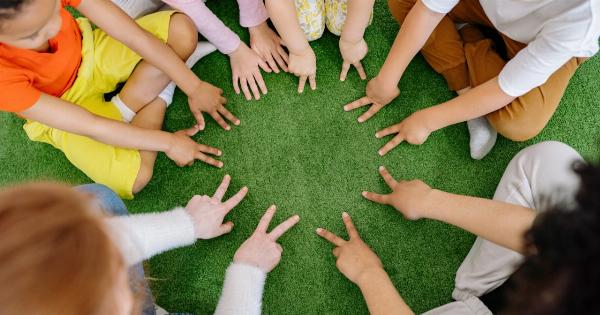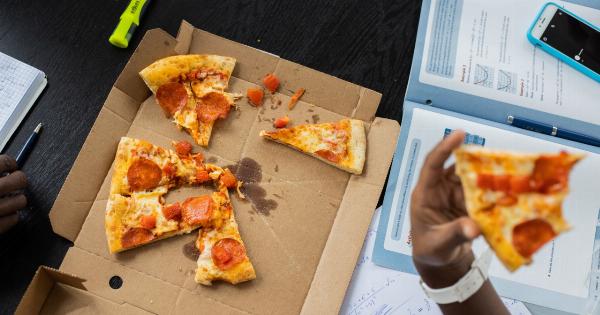Starting school can be an exciting but overwhelming time for children and parents alike. It is a significant milestone that requires careful preparation to ensure a smooth transition.
By taking proactive steps to enhance your child’s school readiness, you can pave the way for a successful start to their educational journey. This article will provide you with valuable insights and practical strategies to jumpstart your child’s school readiness.
The Importance of School Readiness
School readiness refers to the set of skills, knowledge, and behaviors that children should possess before they start formal education. It lays the foundation for future academic success and socio-emotional development.
When children enter school equipped with the necessary skills, they are more likely to engage actively in learning, develop positive relationships with teachers and classmates, and achieve better educational outcomes.
Developing Early Literacy Skills
Literacy skills are fundamental for school success. Early exposure to literacy-rich environments and activities can significantly impact a child’s reading and writing abilities. Here are some strategies to promote early literacy:.
1. Read Together: Establish a routine of reading together every day. Choose age-appropriate books and engage your child in interactive discussions about the stories. 2. Encourage Phonological Awareness: Play games that involve rhyming, clapping syllables, or identifying initial sounds in words. These activities help children develop phonological awareness, a crucial skill for reading. 3. Practice Writing: Provide opportunities for your child to write, even if it’s just scribbles or drawing pictures. Encourage tracing letters, writing their name, and labeling their drawings.Building Mathematical Foundations
Mathematics is another critical area of school readiness. By strengthening your child’s mathematical foundations, you can boost their confidence in numeracy and problem-solving. Try these activities:.
1. Counting Games: Count objects around the house or during walks. Practice counting forward and backward. Use toys, buttons, or books to make it fun and engaging. 2. Shapes and Patterns: Help your child recognize shapes in their surroundings and point out patterns in everyday life. Play pattern-building games with colored blocks or objects. 3. Sorting and Classifying: Ask your child to sort toys or objects by color, shape, or size. This activity enhances their logical thinking and classification skills.Fostering Social and Emotional Skills
School readiness is not only about academic preparedness but also social and emotional development. Children who possess strong social and emotional skills are more likely to make friends, effectively communicate, and manage their emotions.
Here are some ways to foster these skills:.
1. Encourage Cooperative Play: Arrange playdates or join playgroups where your child can interact with peers. Guiding them through sharing, taking turns, and problem-solving helps develop their social skills. 2. Expressing Emotions: Teach your child about different emotions and provide them with tools to express themselves constructively. Encourage open communication and active listening. 3. Independence and Self-Care Skills: Encourage your child to perform age-appropriate self-care tasks like dressing themselves, using the bathroom independently, and tidying up after playtime. These skills foster independence and responsibility.Physical Preparation for School
A healthy body contributes to a healthy mind. Physical activity and well-being are essential components of school readiness. Prioritize the following:.
1. Active Play: Encourage your child to engage in physical activities like running, jumping, and climbing. Take regular trips to the park or play active games at home. 2. Establish Healthy Habits: Ensure your child gets enough sleep, eats a well-balanced diet, and maintains good hygiene practices. Healthy habits contribute to their physical and mental well-being.Encouraging Curiosity and a Love for Learning
Cultivating a love for learning sets the stage for lifelong curiosity and educational growth. Instill a sense of wonder and the joy of exploration in your child with these ideas:.
1. Create a Learning Environment: Set up a designated area in your home for reading, writing, and hands-on activities. Fill it with age-appropriate books, art supplies, and educational toys. 2. Explore Nature: Take your child on nature walks, point out different plants and animals, and encourage them to ask questions. Foster their curiosity about the world around them. 3. Expose Them to Various Experiences: Visit museums, libraries, and community events that expose your child to new ideas, cultures, and experiences. Encourage them to ask questions and engage in discussions.Preparing for the School Routine
Adjusting to the school routine can be challenging for both children and parents. Overcome these challenges with the following strategies:.
1. Establish a Schedule: Gradually transition your child into a routine similar to the school schedule. Set regular bedtimes, waking times, and meal times to help them adapt to the school routine. 2. Practice Independence: Encourage your child to dress themselves, pack their backpack, and complete other school-related tasks independently. This will boost their confidence and foster a sense of responsibility. 3. Visit the School: Take your child to visit the school building before their first day. Familiarize them with the surroundings, playground, and classrooms to reduce anxiety.Conclusion
Preparing your child for school is a journey that requires time, effort, and patience.
By focusing on early literacy skills, mathematical foundations, social and emotional development, physical preparation, curiosity, and familiarity with the school routine, you can jumpstart your child’s school readiness. Remember that each child is unique and their readiness may vary. Celebrate their progress and provide a supportive environment that nurtures their growth.
With your guidance and support, your child will be well-prepared to embrace the exciting world of education.






























